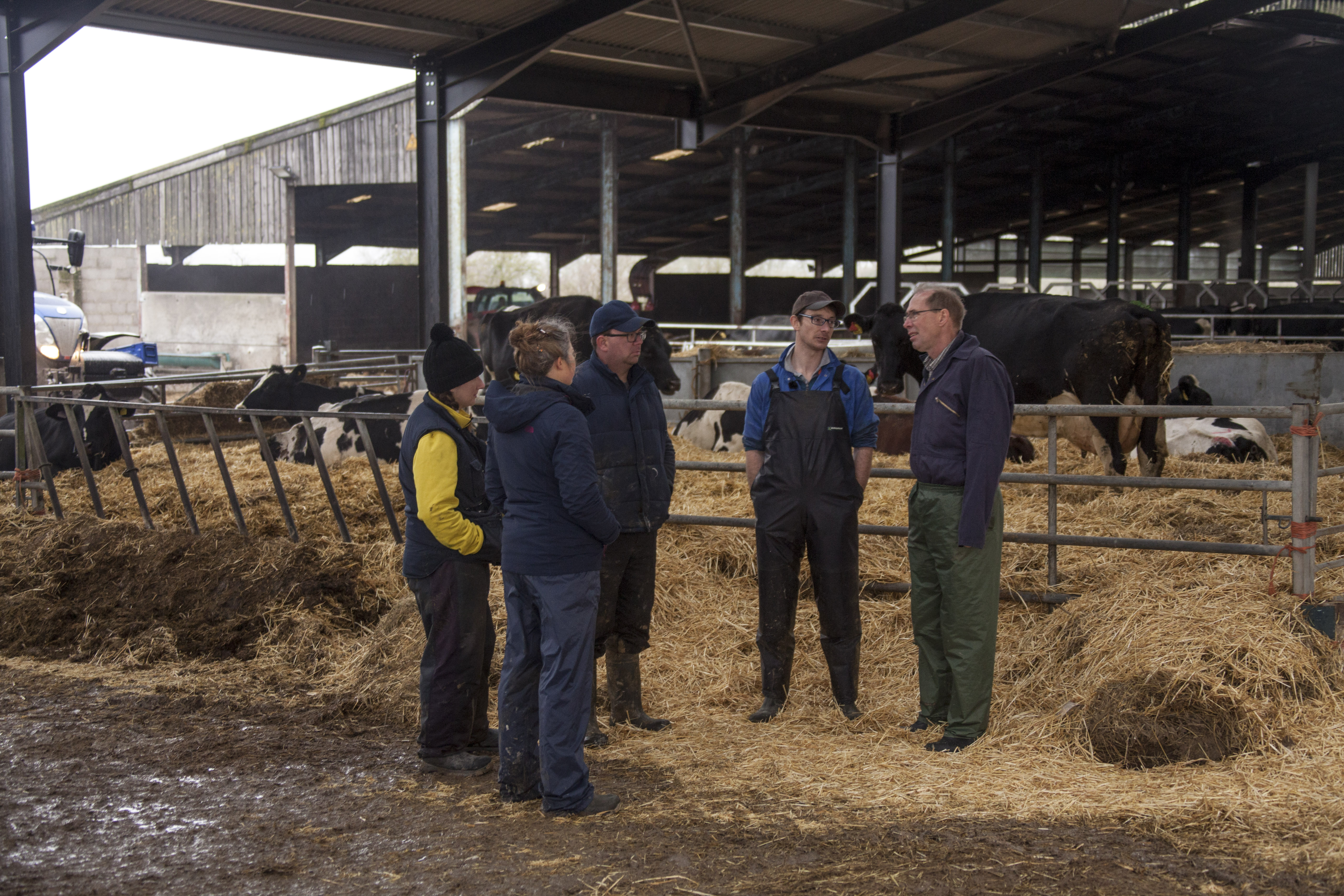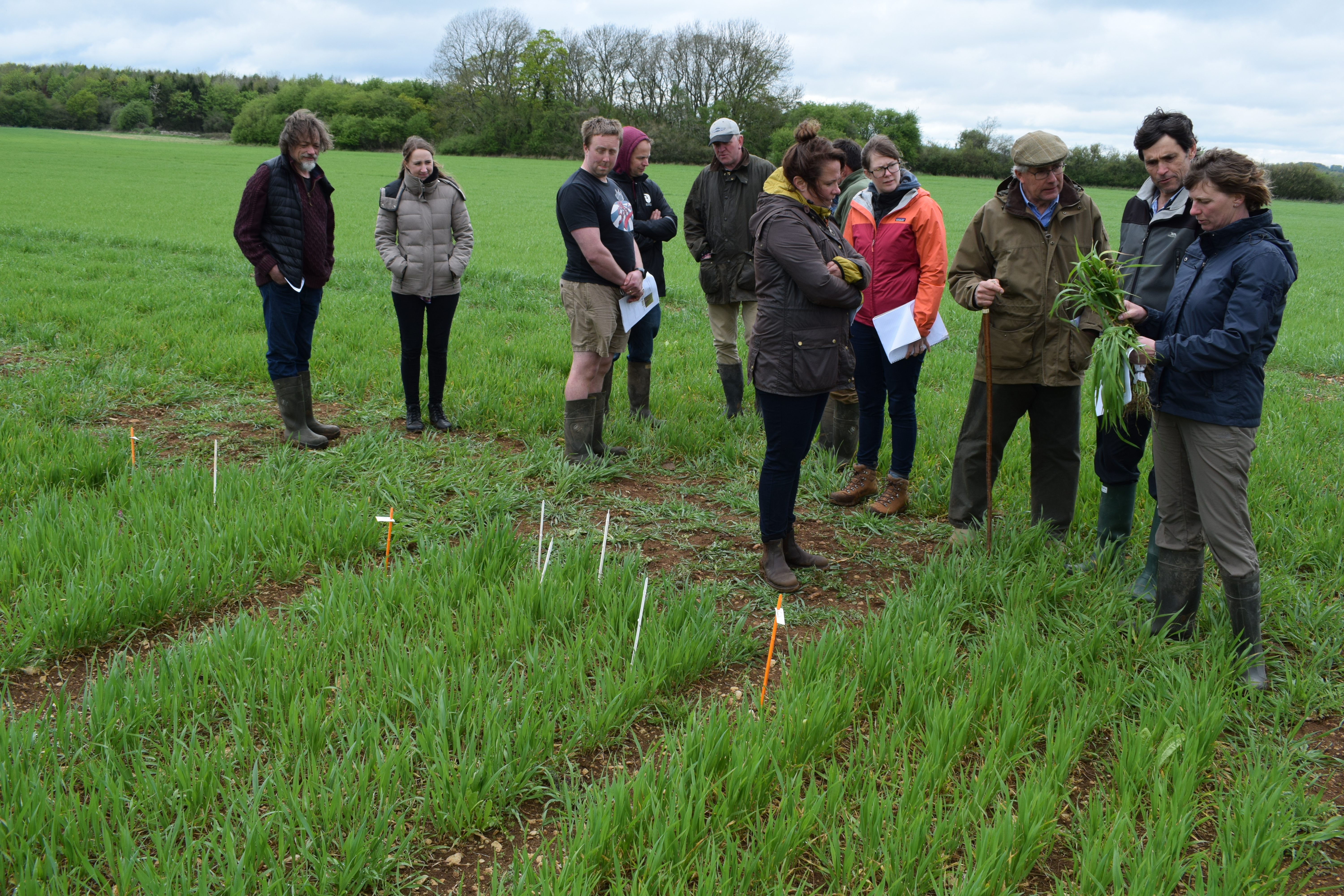What is a field lab?
Field labs are practical, hands-on trials that are open to everyone. Working with a group of likeminded farmers or growers and a top researcher, you can get fast and thorough insights into new solutions to challenges facing your business. Field labs are codesigned by all participants allowing them to collect robust data which is relevant to the real-world farming environment and easily transferable to their businesses.

Field labs are helping us change the way we farm. After trialling cover crops on four hectares in our field lab, we are now going to put 60 hectares of them across the farm. And in 10 years I’d really like to be doing it across the whole farm, once we’ve learned a bit more.

Farmers discuss the results in an field lab aiming to reduce antibiotics use
How does a field lab work?
1) It starts with an idea
From an existing discussion group, project or network, a group of farmers or growers come together around an idea.
2) Identifying existing knowledge and a suitable topic
Supported by a coordinator, the group establishes a topic or challenge they’d like to explore and sets realistic expectations and outcomes for the field lab.
3) Formulating a clear research question and co-designing a trial
Innovative Farmers matches the group with a researcher so they can develop a practical research question to be answered through a field lab. The group works collaboratively to design what data to record and monitor, ensuring the trial is both scientifically robust and practical for a working farm. The plan should be realistic about the roles, responsibilities, and time that the triallists and researchers can commit.
4) Applying for funding
The group can apply to the Innovative Farmers Research Fund to cover trial costs.
5) Progressing the field lab
The group meets regularly and uses social media to discuss insights and tips and make sure the trial stays on track and data is collected regularly.
6) Analyse results
The group jointly analyses the findings and identifies what they have discovered over the duration of the field lab.
7) Share findings
The results and tips are shared with the farming community though events, online and in the media so everyone can benefit.
8) Next steps
The farmers apply what they have learned to their farming business and explore whether a new field lab or other funding streams are needed to answer further questions.

Farmers voting on which wheat varieties they think performed the best
What support is available to help run a field lab?
Every group requires funding to help get it off the ground and take some of the risk of innovation away. Interested groups can apply for a grant of up to £10,000 to assist in covering the costs associated with running a trial. This can be matched with funding sourced by the group itself or through the support of supply chain business looking to support the trial.
This funding will cover a fee for the co-ordinator and access to a researcher and can go towards any new equipment or inputs that the trial is testing.
